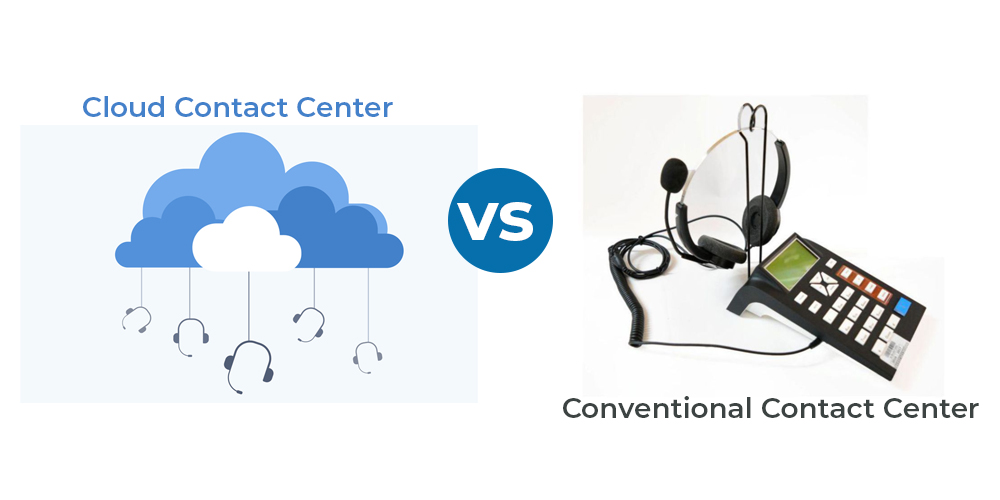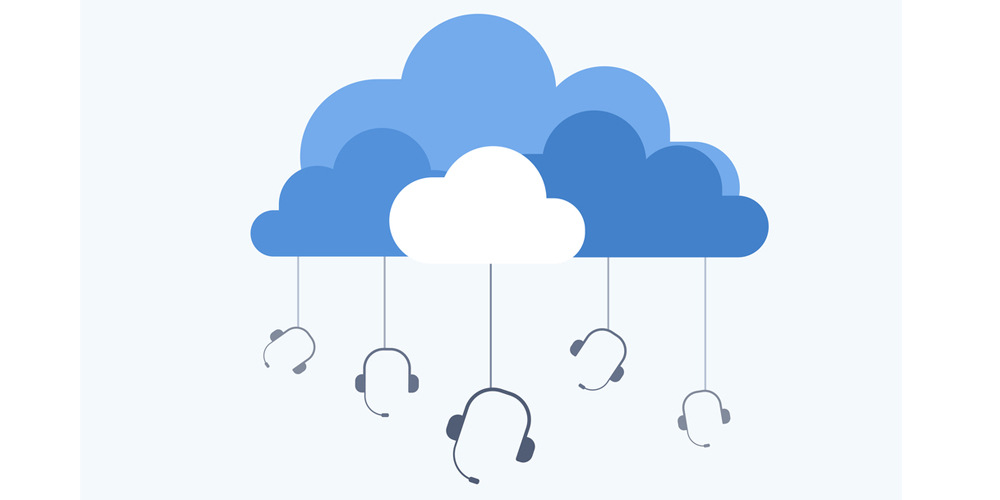With the constant advancement in technology and growing customer demands, business firms need to keep their pace, enhance their current IT system and shift to an innovation that can guarantee the consistent customer experience.
While some of the Call centers are still stuck with conventional call center software that can’t meet the demands of the customers, most of them have now started using cloud telephony contact centers to keep up with the ever-evolving technology.
What is a Cloud Based Contact Center?
Cloud contact centers make contact center software functionality usable via the web which makes it accessible from any part of the world without the need of the hardware setup required in conventional call centers.
Cloud Contact Center vs. Conventional Contact Center

Conventional contact centers equip businesses with limited options. The installation of hardware setup is time-consuming which automatically increases the operational costs as purchasing hardware means investing in the space cost as well. Also, conventional call centres require a lot of hassle of managing systems, licenses and system updates.
On the other hand, cloud contact centers, doesn’t involves any complexity in maintaining the hardware and additional operational costs.
Also Read:- Reasons to choose a cloud over an On-Premise call center
Benefits of Using Cloud Based Call Center
1. Consistent Business Model
Cloud-based call centres function on the web therefore, users can easily access systems and provide support to their customers at any time and from any part of the world.
2. Quick setup
Since cloud based call centers are wireless and do not consist of hardwares, they can be installed at a faster pace in a hassle-free manner.
3. Monitoring Performance
Cloud based call centers allow the supervisors to keep track of the performance of the agents which indirectly boosts employee productivity and enhances the quality of service offered to the customers.
4. 360 Degree Customer Support
By using cloud based centers, all the data related to the customer can be collected in one place and agents can use that data to solve the queries and assist the customers in an efficient way.
5. Improved Reliability
Since cloud based call centers can aggregate the necessities of a huge number of customers and connect calls worldwide, their reliability is greater than on-premise call centers.
6. User-friendly Systems
As Cloud based centers are based on new and improved technology, their designs are easy to use and customer-driven which further allows the agents to work without the unnecessary hassle of setting up the hardware systems.
7. Increased Productivity
Cloud-based contact centers give more flexibility to the agents as they can work with a single incorporated dashboard and keep a record of every detail about the customer which can be used for future reference.
8. Scalable
Cloud-based call centres are easily manageable as they do not require extra hardware setups unlike on-premise call centers which need to invest in new hardware for a seamless operation.
How does it work?
Setting up a cloud-based center is a super easy task that begins with selecting the right type of cloud according to the requirements of your business.
Types of cloud Based Call Centers
1. Public Cloud
The database and applications are held and managed by the cloud service providers and the services are managed using a web browser. As the private cloud is handled by your service provider, it doesn’t require any kind of maintenance.
Along with being economical, the private cloud is highly reliable and is perfect for BPO’s, telecommunication, travel and hospitality.
2. Private Cloud
Unlike the public cloud, private cloud is owned and handled by an individual enterprise.
The hosting of a private cloud can be done at your on-site data center or by a third-party service provider. In a private cloud, the hardware and software are devoted to your enterprise and the maintenance and groundwork are maintained on a private network.
Private clouds are generally used for places that are equipped with higher amounts of data such as banks, government offices etc. Businesses opting for private clouds are safe in terms of data security.
3. Hybrid Cloud
Hybrid cloud allows you to store your information and applications on private clouds as well as public clouds as per the requirements of your business.
The enterprises that consist of bulks of data that needs less security and the data which is confidential, can use hybrid cloud as it comes with high flexibility and is profitable.
For example, In the case of healthcare, departments related to appointment booking, report generation and customer service work parallel to each other. So, the information passed in the report generation domain can be confidential which needs the implementation of a hybrid cloud to prevent data breaching.
Conclusion
Along with being the ROI generator for your business, Cloud-based call centers offer several advantages such as high information security, scalability, adaptability and reliability. In the end, the success of your business depends on the type of cloud center you choose according to the demands of your firm.





